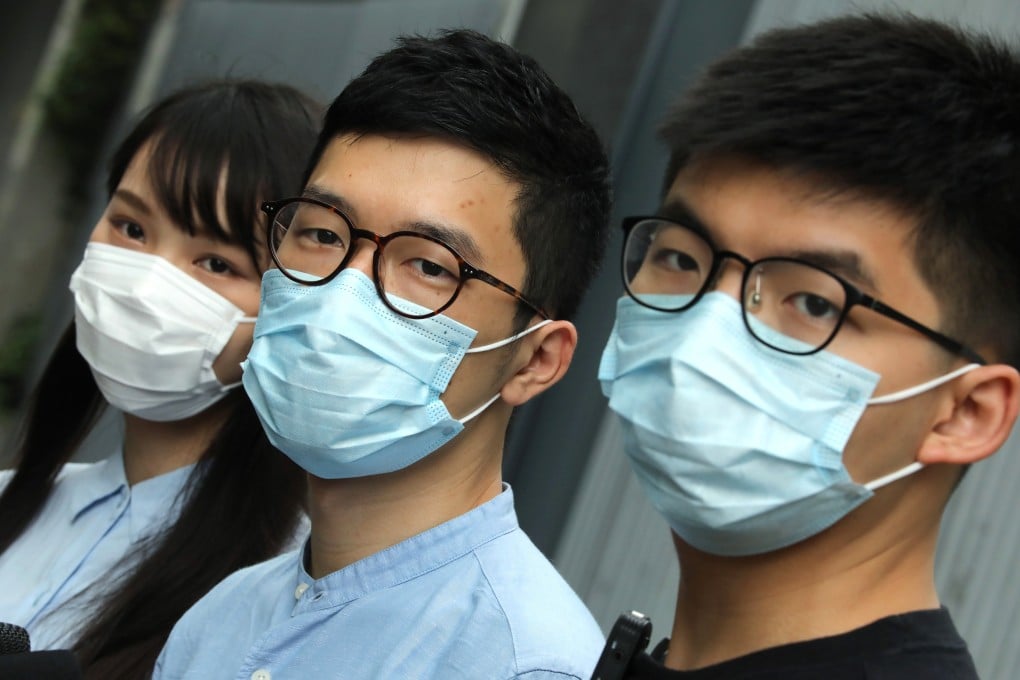Advertisement
Hong Kong national security law: future of city’s localist movement hangs in balance as groups disband, activists quit or flee city
- Demosisto folds as co-founder Joshua Wong announces decision to leave party along with several associates
- Hong Kong National Front and Studentlocalism take fight abroad as they end operations in city
Reading Time:4 minutes
Why you can trust SCMP

The fate of Hong Kong’s localist political groups was left hanging in the balance on Tuesday, as at least three shut their local branches soon after the national security law was passed by China’s top legislative body.
Opposition party Demosisto disbanded hours after Joshua Wong Chi-fung and several key members tendered their resignations, vowing to continue their political advocacy “in a personal capacity” on the day the legislation was due to take effect in the city.
The Hong Kong National Front and Studentlocalism also folded, but said they would continue to operate overseas.
Advertisement
The announcement came soon after the National People’s Congress Standing Committee unanimously passed the new law in Beijing.
While details of the law have yet to be made public, the legislation targets acts of secession, subversion, terrorism and collusion with foreign forces to endanger national security.

03:03
Activist Joshua Wong expects to be ‘prime target’ of national security law in Hong Kong
Activist Joshua Wong expects to be ‘prime target’ of national security law in Hong Kong
In a series of statements posted on their social media accounts after the law was passed, former lawmaker Nathan Law Kwun-chung, as well as Agnes Chow Ting and Jeffrey Ngo Cheuk-hin also announced their departures from Demosisto, which was formed in April 2016 after the Occupy movement two years before.
Advertisement
Advertisement
Select Voice
Select Speed
1.00x